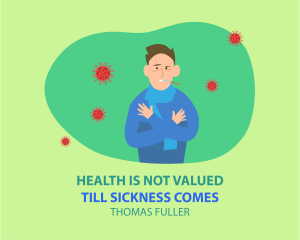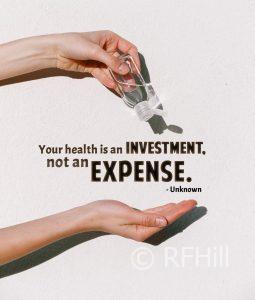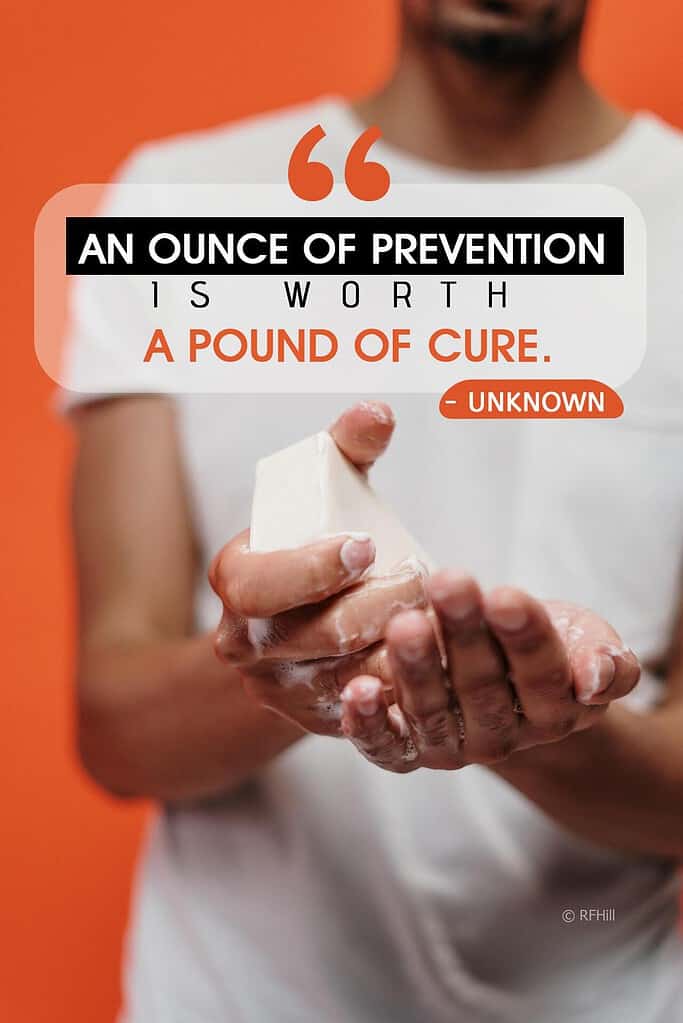Comprehensive Guide on Minimizing the Risk of Illness While Travelling
Travelling to other countries is an enriching experience, offering a chance to explore diverse cultures, cuisines, and landscapes. However, it also exposes you to different health risks. This guide provides an in-depth look at minimizing the risk of getting ill while travelling, focusing on hygiene, food preparation, and medications.
Every destination is different; what works in one place might not work in another. Always research and take appropriate precautions for your specific travel destination and personal health needs.
Before You Leave
 Vaccinations
Vaccinations
Before travelling, check with your doctor or a travel clinic about any recommended or required vaccinations for your destination. This can help protect you from diseases that are common in the country you’re visiting.
Travel Insurance
Consider getting travel insurance that includes coverage for medical expenses. This can be a lifesaver if you get sick and need medical care abroad.
Pack a First Aid Kit
A basic first aid kit with band-aids, antiseptic wipes, tweezers, and over-the-counter medications for pain, fever, allergies, and stomach upset can be very useful.
First Aid Kits For Travelling
Personal Cutlery
Carrying your own disposable or reusable fork and spoon can also be helpful, especially when travelling to regions where eating with hands is common.
Prioritizing Hygiene for Minimizing the Risk of Illness
Hand Hygiene

Face Touching
Unconsciously touching your face is a common habit that can lead to the spread of germs. One traveller shared a useful tip to break this habit: wear a rubber band on your wrist and switch it to the other wrist each time your hand touches your face. This method can increase your awareness and help you avoid touching your face.
Money Handling
Money is often overlooked as a source of germs. It passes through many hands, picking up bacteria and viruses. After handling money, it’s advisable to use hand sanitizer or wash your hands before touching your face or eating.
Food Safety for Minimizing the Risk of Illness
Street Food
Street food is a significant part of the culinary experience in many countries. However, it can also be a source of foodborne illnesses. If you try street food, ensure it’s freshly cooked and served hot. Avoid food sitting out, as it’s more likely to harbour harmful bacteria.
Fruits and Vegetables
Fruits and vegetables should be thoroughly washed in purified water before consumption. It’s also advisable to peel them using a knife washed in purified water. Some travellers even recommend bleaching all fruits and vegetables before eating.
Cooked Food
When eating out, choose places that serve hot, freshly cooked food. Cold food, especially meat in countries where refrigeration is a luxury, can be a breeding ground for bacteria. Also, ensure that any bottled water is opened in front of you to avoid the risk of contamination.
Medications and Supplements for Minimizing the Risk of Illness
(Remember, these tips are not foolproof, and it’s always best to consult your doctor or a naturopathic practitioner before travelling, especially if you have existing health issues.)
Travelan
Travelan is a product designed to help prevent digestive upsets. It’s taken before eating, especially in places with questionable hygiene standards. Other brands offer similar products, and they can be found in most pharmacies.
Probiotics
Probiotics are beneficial bacteria that help maintain a healthy gut. They can be particularly beneficial when travelling to places with different food and water sources. Look for probiotics with multiple strains stored in glass bottles, as they are better preserved.
Pepto Bismol
Pepto Bismol is a medication that can help prevent and treat symptoms of stomach upset. According to the CDC, it can be taken prophylactically if you’re going to be somewhere with questionable food hygiene.
Grape Seed Extract (GSE)
GSE is a natural supplement known for its antiviral, antibacterial, and anti-fungal properties. Taking a few drops daily in orange juice or water can help boost your immune system.
Other Tips for Minimizing the Risk of Illness
Shower Water
Shower water can sometimes be a source of bacteria. It’s best to avoid getting any water in your mouth while showering. One traveller shared a tip to become efficient at not getting water in the mouth while showering.
Stay Hydrated
Dehydration can make you more susceptible to illness. Drink plenty of bottled or purified water, and avoid ice unless you’re sure it’s made from purified water.
Adequate Rest
Travelling can be physically demanding, and lack of sleep can weaken your immune system, making you more susceptible to illness. Try to maintain a regular sleep schedule and get plenty of rest.
Physical Activity
Regular physical activity can boost your immune system and help keep you healthy. Try incorporating some form of exercise into your travel itinerary, whether walking, swimming, or using a hotel gym.
Healthy Eating
Try to maintain a balanced diet while travelling. Eating various fruits, vegetables, lean proteins, and whole grains can provide the nutrients your body needs to fight illness. Just remember to treat the fruits and vegetables beforehand.
Avoid Animal Contact
In some countries, animals can carry diseases. Avoid touching animals you don’t know, especially wild or stray animals.
Be Aware of Altitude Sickness
If you’re travelling to a high-altitude area, be aware of the symptoms of altitude sickness, including headache, nausea, and dizziness. Ascend gradually, stay hydrated, and consider medication if necessary.
For a humourous discussion of illness while travelling, check this out:


 Vaccinations
Vaccinations